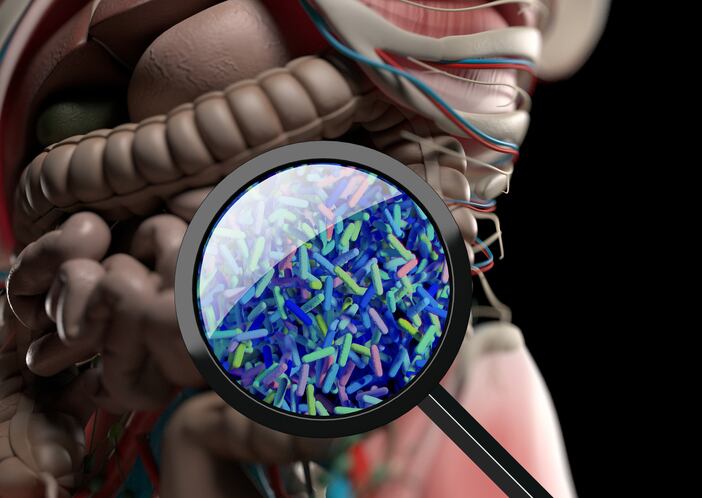Inflammatory bowel disease, comprised of ulcerative colitis (UC) and Crohn’s disease (CD), affects tens of thousands of patients in Ireland alone. While the condition can be controlled with drugs, the unpredictability of relapses is a major challenge for patients and is one of the reasons why the microbiome is so important in providing markers to predict relapse. Yet few large-scale longitudinal studies across stages of disease activity have been conducted, particularly with intercontinental comparisons.
Therefore researchers from APC Microbiome Ireland, at University College Cork, led collaborative studies which they describe as "two of the most important and largest microbiome studies ever undertaken in patients with chronic inflammatory bowel disease".
The most recent study, published in the journal Gut yesterday (June 14th), followed 700 Irish and Canadian patients with CD and UC and ranked the effect of disease activity, medications, diet and geographic location on their faecal microbiota composition at three time points with 16 weeks intervals and revealed disturbances in the microbiome associated with relapses of disease.
They collected 1815 stool samples from 303 patients with CD, 228 patients with UC and 161 healthy controls from the regions of Manitoba, Canada (59% of subjects) and Cork, Ireland. Machine learning separated disease from controls, and active from inactive disease, when consecutive time points were modelled.
Researchers concluded that that inter-individual variance was greater than intra-individual, and that the microbiota was more unstable in CD and UC compared with controls. They conclude that geographic location contributes more to microbiota variance than common variables such as prior surgical resection, age, gender and diet.
This backs up the findings of the center's previous study, published in Nature Communications in March, which showed changes in the microbes sampled at colonoscopy were directly associated with inflammation in the colon.
Dr Marcus Claesson, leader of this research at APC Microbiome Ireland, said the studies will open the way for doctors to be able to predict relapses of disease before patients develop symptoms.
“We are delighted that both of our research approaches showed complementary, albeit important, results which will be of benefit to patients in the future.
“While ethnicity, diet and geographical location were found to contribute to microbiota variation globally, it is the variation in microbiota composition within individuals followed over time which increases the power of microbiome markers to predict relapse. This has implications for future microbiota studies and for the development of precision medicine.”
Enhanced molecular resolution
The work published in March studied paired biopsies from inflamed and non-inflamed mucosa of 80 adult patients with ulcerative colitis and 50 with Crohn’s disease, along with paired biopsies of 31 non-IBD controls, all recruited in Ireland.
The study extended the observations thanks to its large number of paired biopsies and its inclusion of a wider array of molecular data including microbiota, host transcriptome, epigenome and genotype. It also provided enhanced molecular resolution with bacterial species classification and the usage of error-corrected reads, as opposed to representative sequences of operational taxonomic units.
They found that habitual diet appeared to have minimal relationship with observed differences in microbiota composition across the study groups, possibly due to its lesser effect on mucosa-adherent bacteria compared with fecal microbiota
The researchers concluded: "Epithelial DNA methylation improves disease classification and is associated with both inflammation and microbiota composition. Microbiota sub-groups are driven by dominant Enterbacteriaceae and Bacteroides species, representative strains of which are pro-inflammatory in vitro, are also associated with immune-related epigenetic markers. In conclusion, inflamed and non-inflamed colonic segments in both CD and UC differ in microbiota composition and epigenetic profiles."
Source 1: Nature Communications
Fergal Ryan et al
"Colonic microbiota is associated with inflammation and host epigenomic alterations in inflammatory bowel disease"
Source 2: Gut
Adam G Clooney, Julia Eckenberger et al
"Ranking microbiome variance in inflammatory bowel disease: a large longitudinal intercontinental study"





